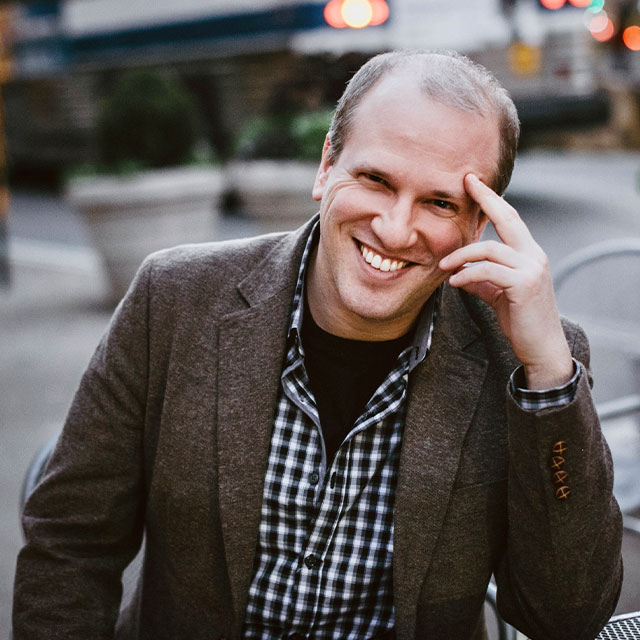
Education
DMA, University of Connecticut
PDPL, Mannes School of Music
MM, M.M. Saint Petersburg State Conservatory (Russia)
BM, St. Petersburg State Rimsky-Korsakov Conservatory (Russia)
Anthony Bonamici is an American pianist originally from Livonia, Michigan. Known for his decisive musical voice, emotional intensity, scrupulously crafted interpretations, and ability to connect intimately with his audiences, Anthony has performed at Carnegie Hall and the DiMenna Center for Classical Music in New York City, the Smithsonian Institution in Washington, D.C., and in many of Russia’s most famous concert halls including the Moscow Conservatory, the Great and Small Halls of the St. Petersburg Philharmonic, and the Mariinsky Theater Concert Hall. He has collaborated with vocal soloists of the Mariinsky Theater and Helikon Opera, and with members of the Mariinsky Theater Orchestra, Saint Petersburg Philharmonic, Russian Early Music Ensemble, Barocco Concertato, Bolshoi Symphony Orchestra, and The Moscow Virtuosi. He has presented lecture recitals for the Steinway Society of Michigan, the Westfield Center for Historical Keyboard Studies, the Ann Arbor Piano Teacher’s Guild, and has performed for the Chopin Society of Connecticut.
Bonamici holds degrees in both Piano Performance and Music Composition and has studied historical performance practice on both the harpsichord and fortepiano. He attended the Moscow Conservatory, St. Petersburg Conservatory, the Mannes School of Music in New York City, and the University of Connecticut where his doctoral research, focused on the piano music of nineteenth-century New England composers, concluded with the dissertation “Forgotten Legacy: The Piano Works of John Knowles Paine.” His teachers include the renowned American pianist Richard Goode, the prolific Russian composer and protégé of Dmitri Shostakovich, Boris Tishchenko, pianists Naum Shtarkman, Yuri Airapetyan, Elena Shishko, Angelina Gadeliya, John Perry, and Audrey Axinn. He has participated in masterclasses of Rosalyn Tureck, Paul Badura-Skoda, Malcolm Bilson, Eteri Andjaparidze, and Vladimir Feltsman.
From 2007 until his return to the United States in 2016, Anthony taught undergraduate and graduate piano performance and chamber music at the Russian State Pedagogical University named after A. I. Herzen in Saint Petersburg, Russia. At the same time, he managed operations of the “Bonamici Clavecins” workshop that built, sold, restored, and maintained harpsichords and other early keyboard instruments. Bonamici harpsichords now reside in numerous musical institutions from Oslo to Vladivostok.
Teaching Philosophy
An understanding that all students are unique necessitates a range of varying approaches in guiding their musical journeys. However, while individual paths may differ, the ultimate goal remains consistent: a deep enjoyment, appreciation, and love for music. Whether a student's aspirations lead them to a professional career in music or not, my aim as an educator is to nurture independent thinkers, enrich student’s lives with the kaleidoscopic world of music, and inspire them with genuine enthusiasm and passion. My own recent experience as a student, after a decade of teaching at the collegiate level, has reinforced my commitment to empathetic and supportive teaching. I strive to create an environment where students are free to express themselves (especially when they disagree with me), while at the same time holding them to the highest standards of which they are capable.
Central to my teaching approach is the development of technical proficiency, laying a solid foundation that enables students to express themselves musically with confidence and clarity. I enjoy teaching students how to practice to achieve results, creating time schedules and specific, weekly goals, and setting students up for successful, confident performances on juries and in concerts. I try to be demanding, but understanding, assigning concrete tasks that are reasonable yet always moving forward. I value my sense of humor and humane, friendly approach to learning, helping students demand of themselves a realization of their potential, yet supporting them when they sometimes fall short of a temporarily out-of-reach goal.
Drawing on my background in musical composition, I give students analytical tools that help them to understand how music is put together and to isolate and comprehend phrase structure and key components of form, details essential to a convincing performance.
I believe in treating students as intellectual equals regardless of age, engaging them in dialogue and posing questions aimed at leading them to a deeper understanding of musical concepts. By fostering a collaborative learning environment, I encourage students to develop their imagination while acting as a guide in the cultivation of their musical taste and stylistic sensibilities. In this I find that an interdisciplinary approach contributes much, and I often reference history, visual art, literature, popular culture, etc. to help students better connect to the music they perform. A well-rounded mind not only makes for an interesting and meaningful musical experience, but for a rewarding life as well.